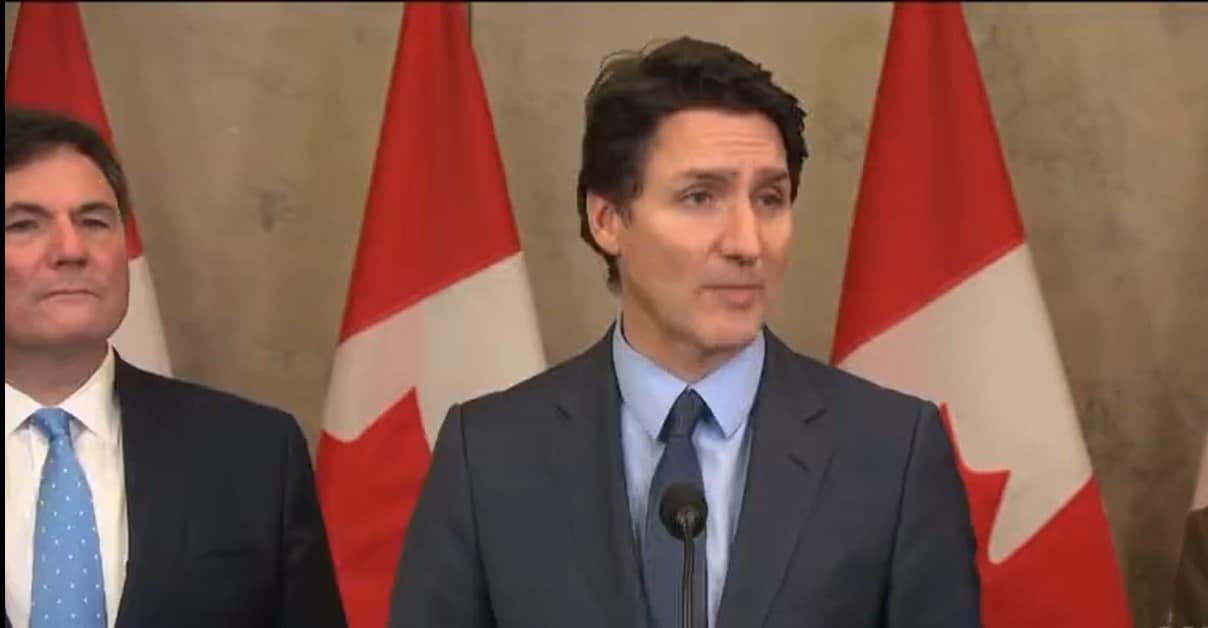Canadian Prime Minister Justin Trudeau and regional leaders said Wednesday all options were on the table to respond to possible US tariffs while still holding out hope of avoiding a trade war.
After meeting with provincial and territorial leaders in Ottawa, Trudeau highlighted that more than one billion dollars have been earmarked for new border security measures to clamp down on illicit drug trade and human trafficking, in hopes of placating Trump, who has vowed to slap 25 percent tariffs on Canadian imports.
“If the US administration chooses to still implement tariffs, we will respond purposefully, forcefully, resolutely,” he said.
“Everything is on the table as potential responses.”
A government source told AFP Ottawa could impose retaliatory tariffs on hundreds of American-made goods, including steel products, ceramics such as toilets and sinks, glassware, plastics, and Florida orange juice.
Provincial and opposition leaders also called for blocking exports of Canadian oil, electricity and critical minerals in what could devolve into a trade war.
But Alberta Premier Danielle Smith pushed back against any disruption of the more than three million barrels of oil shipped daily from her province to the United States — showing cracks in Canada’s unified response.
“Alberta will simply not agree to export tariffs on our energy or other products, nor do we support a ban on exports of these same products,” she posted on X.
Doug Ford, the premier of Ontario, the nation’s most populous province and its economic engine, bristled at her remarks, telling reporters: “When Donald Trump comes at us… he’s coming full tilt at Canadians as a whole.”
“Protect your jurisdiction but country comes first,” he said.
Nearly 77 percent of Canadian exports go to the United States, which in 2023 represented about Can$548 billion (US$382 billion) worth of goods.
Energy (Can$166 billion), and motor vehicles and parts (Can$82 billion) from Ontario, are the largest single exports.
Ford warned this week that 500,000 jobs in Ontario alone are at risk if Trump makes good on his tariff threat.
Earlier in the day, officials provided details of Canada’s plan to strengthen border security, including the deployment of drones and Black Hawk helicopters to patrol the 8,891 kilometer (5,525 mile) frontier, starting Friday.

